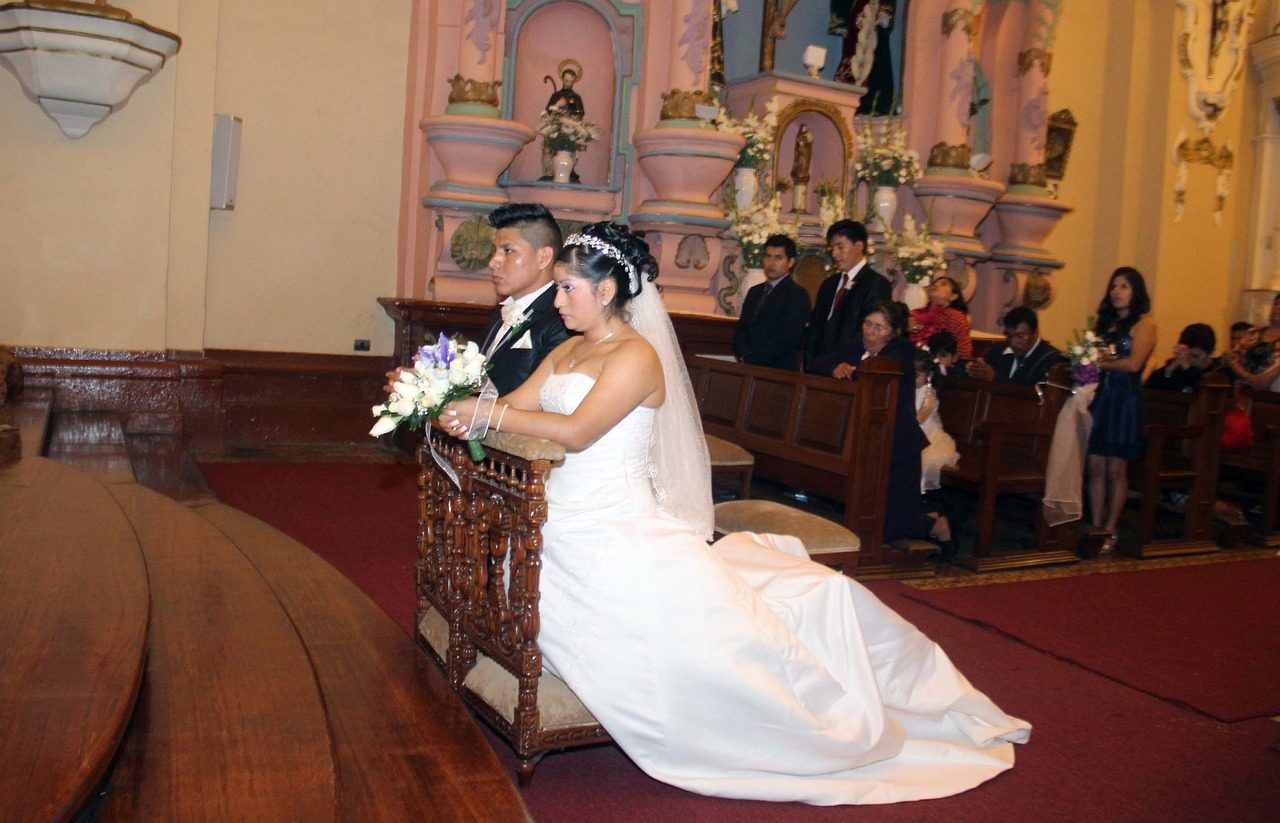
In a marriage there is intimacy.
Marriage is a term that comes from the Latin matrimonĭum . In the past, it was exclusively about the union of a man and a woman that took place through certain rites or legal procedures. In recent years, more and more States have accepted marriage between people of the same sex, which means that this marital union is no longer the heritage of heterosexuality.
The marriage bond is recognized at the social level, both through legal norms and customs. Upon marriage, spouses acquire various rights and obligations. Marriage also legitimizes the filiation of the children that are procreated by its members .
Types of marriage
It is possible to distinguish, at least in the Western world, between two major types of marriage: civil marriage (which takes place before a competent state authority) and religious marriage (which legitimizes the union in the eyes of God ).
For the Catholic Church , marriage is a sacrament and an institution whose essence is in the divine creation of man and woman. Catholic marriage is perpetual: it cannot be broken according to religious precepts (unlike civil marriage , where divorce exists; this means that the marriage contract signed in a Civil Registry can be broken). A separated person, therefore, cannot remarry in the Church.
In colloquial language, the couple formed by the husband and wife is called a marriage: “We are going to rent the house to an elderly couple,” “A couple entered the business and spent more than five hundred pesos,” “I can't do it.” Believe it, yesterday they robbed the couple who lives next to my house ."

Religious marriage is a lifelong commitment.
The rituals
There are many rituals associated with marriage. In Western countries, when bride and groom become husband and wife, the wedding ceremony usually takes place within the framework of a grand celebration.
The party consists of a banquet with many guests, dancing and the traditional wedding cake. It is common for newlyweds to then go on a trip to enjoy their honeymoon .
Over the years, wedding anniversaries can also be celebrated by traveling or sharing dinner at a restaurant. This is how love and coexistence continue to be celebrated.

The groom's suit and the wedding dress are the traditional clothing of those who get married.
Characteristics of marriage
Marriage implies a formalization of the romantic relationship . The institutionalization of the link through a Civil Registry confers rights and imposes legal obligations; The religious ceremony, meanwhile, has an impact on the field of beliefs.
Although each couple has their own reality, marriage is generally associated with the couple living together in a shared home. It also creates kinship : when you get married, political ties are established (there are in-laws, brothers-in-law, etc.).
Trust, fidelity, communication and understanding are pillars of a marriage. When a crisis arises, many couples turn to marriage counseling to try to facilitate reconciliation and avoid separation.
Obligations and rights of spouses
In this context, we talk about conjugal rights and marital obligations, a series of points that the Civil Code points out and that is complemented by the education of each culture. In principle, each person should learn to treat others with compassion and respect , so that it would never be necessary to resort to the authorities in cases of violence; However, since this is not always the case, it is vital to establish certain rules to remind both parties how they should behave within the marriage.
Before going into the details, it is necessary to highlight that both parties must fulfill the same duties and deserve the same rights, both within the relationship and before the law. Unfortunately, machismo often means that in heterosexual unions there is a clear imbalance in this commitment , which puts women in a disadvantaged position.
Duties of the members of a marriage
Marriage must be built and maintained between the two members. Precisely, the Civil Code tells newlyweds that they must live together in an environment of respect and collaboration, always acting in favor of the family group. In more everyday and precise terms, the following obligations should fall on both parties:
- Get the money to cover expenses. Although each couple can organize themselves in different ways, the obligation to work is not exclusive to either party, but to both. Historically, machismo has placed this burden on men. The management of the domestic economy, however, must be shared.
- Keep the house clean and tidy. We have been living for centuries in a world in which women are associated with this series of tasks , but little by little we are entering an era of equality, in which men have fifty percent of the responsibility.
- Take care of the offspring. This point includes taking charge of their upbringing, helping them study, taking care of their health, playing with them, teaching them the bases of morality and life in society and many other things that we need to develop as good people. If the child has two adults in his care, then both must share these obligations.
